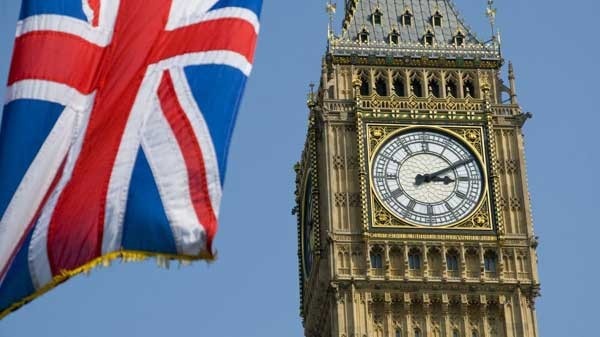Britain’s efforts to reform the visa application process for international students from a number of countries will not extend to India — a development that highlights recent strains in the bilateral relations between the two countries since Prime Minister Narendra Modi’s visit to London earlier this year.
Announcing a wider overhaul of the U.K. immigration regime, the British government said it would be expanding the list of countries from which students would be able to provide reduced documentation when applying for Tier 4 student visas to include China and other countries, including Bahrain, Indonesia, and the Maldives. However, India was not on the list.
“This change demonstrates the continued focus on improving the U.K.’s offer to international students,” said Immigration Minister Caroline Nokes in a statement to the House of Commons on Friday.
While India remains the third largest country for whom student visas were granted in 2017 — an increase of 27% on the year before — the numbers remain sharply down on a longer term perspective. In 2010, over 60,000 visas were granted to students from India. “We welcome Indian students who want to come to the U.K. to study at our world-leading educational institutions. We issue more visas to students from India than any other country except China and the U.S.,” said a spokesperson for the Home Office.
An Indian government source suggested that the British perspective on Indian students was simply based on the fact that Indian students represented one of the largest groups. “We believe they have got this wrong,” the source said.
They added that the exclusion of Indian students from the reforms had to be seen in the context of the recent heightening of tensions and India’s decision — at Sushma Swaraj’ behest — not to sign an MoU on the return of illegal migrants that Britain had sought, during Mr. Modi’s April trip.
During her visit to India in 2016, British Prime Minister Theresa May said the U.K. would consider an improved visa deal, “if, at the same time, we can step up the speed and volume of returns of Indians with no right to remain in the U.K.”
“Relations are not at their best right now,” said the official source.
India has in the past repeatedly raised the issue of visas for students — as well as those for professionals — with U.K. authorities.
Earlier this month, High Commissioner Y.K. Sinha met with Britain’s Minister of State for Universities Sam Gyimah and “made special mention of the challenges regarding smoother and greater student faculty mobility between the two countries,” the Indian High Commission in London tweeted earlier this month.
Worrying contrast
In January 2017, shortly after taking over, Mr. Sinha had publicly highlighted India’s concerns around the treatment of students in the U.K., which contrasted with the attitude of other countries such as Australia, Germany and France.
“They are actively going on to campuses in India and trying to attract students there,” he had said at the time. “There is something going wrong here because the U.K. has obviously been the first preference for Indian students,” he said.
Lord Karan Bilimoria, crossbench member of the House of Lords and president of the U.K. Council for International Student Affairs, while welcoming the broader immigration changes, expressed his shock at the exclusion of Indian students from the easing of rules.
Kick in the teeth
“I consider this another kick in the teeth for India. I think the timing of this couldn’t be more astonishing, given that next week is U.K.-India Week,” he said, pointing to a summit on bilateral relations post-Brexit that is to take place on the outskirts of London next week. “It is completely hypocritical that this is announced at the same time that Britain is talking about doing a post-Brexit free trade agreement (FTA) with India. If this is the way they treat India, they can dream on about an FTA with India.”
“We are concerned about the messaging that is being sent to India — rather than recognising the value that Indian students bring, are we actually reinforcing the message of ‘bogus students’?” asked Sanam Arora, chairperson of the National Indian Students and Alumni Union (U.K.). “It is important to note that today’s announcement makes no change to the process of application for Indian students but it is the perception of this message amongst Indian students that worries us. Is it really fair that an Indian student getting into a British university is treated different to a Chinese student getting into the same university? And this raises another question — will China continue to get even more favourable actions while India gets the rhetoric?”













